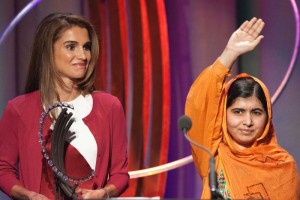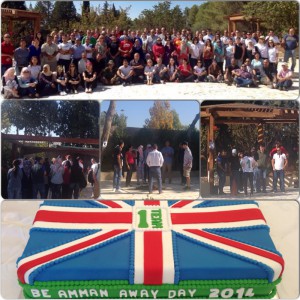15th October 2014
Learning for Life
The Nobel Peace Prize is one of the world’s most prestigious awards. This year it was won by a Pakistani schoolgirl who fought for the right to learn. At 17 Malala Yousafzai was the youngest person ever to win the prize. She was told about it during a chemistry class at Edgbaston High School in Birmingham in the UK.
Malala became a household name after being shot in the head in 2012 for fighting for girls’ right to education. She had been writing a blog for the BBC about life in the Swat valley in Pakistan where the Taliban were blowing up girls’ schools.
After intensive care at a hospital in Britain, Malala continued her fight. Speaking at the United Nations General Assembly she argued that education is a fundamental right for all: it is neither Eastern nor Western, but human. She showed great courage, stressing that if the whole world was silent, even one voice becomes powerful. She was determined to defy the extremists and fight for what she believed in: that girls have as much right as boys to fulfil their potential.

Denying that right on the grounds of religious belief is wrong: there is nothing in Islam which justifies that idea. Indeed, one of the sayings from the hadith states that “Seeking knowledge is mandatory for every Muslim”. Therefore it is a right and responsibility for everyone, male or female.
Learning through education or training makes sense for every country, every organisation and every company. Why deprive half of your population of the opportunity to develop their talents? Why hold back the ambitions, potential and future skills of your employees?
Education is not just about preparing young people for life; it is something we all need to do throughout our lives. The extent, nature and pace of change mean that we cannot afford to be left behind if we refuse to embrace new skills. Anyone who is reluctant to use email, log-on to the Internet or learn social media skills will soon make themselves irrelevant.
Learning new skills isn’t easy. It has been forced on many workers by the changes in the economy. Men who worked in heavy industries like coal mining have had to learn new skills as their old industries closed down and new opportunities were created. Even in recent years in Britain, where over 450,000 public sector jobs have been lost, 1.3 million private sector jobs have been created, requiring people to learn and develop new disciplines and new mindsets.
In recruiting, employers are looking for skills rather than knowledge. So job-seekers need to concentrate on the skills that businesses are looking for: leadership, communications, and customer service. Similarly, the ability to challenge a decision, to bring solutions rather than problems and to think creatively about new options and ideas are all worth more than an encyclopaedic knowledge of some arcane subject.
People in jobs also need to focus on new learning and development opportunities to target the new skills they want to learn. And employers should regard training as an investment, not a cost.

We invested in our staff this week, shutting the Embassy and heading off to a farm near Madaba for an AwayDay. People were divided into teams and spent the morning playing games. These exercises were designed to show the importance of working together as a team, of planning carefully by allocating clear tasks to each person, and of communicating clearly in both directions, speaking and listening. We all benefitted hugely from the day; and we had a lot of fun too.
The importance of education cannot be exaggerated. The aim is not fill empty minds with facts. It is about creating open minds and lighting a fire with people’s natural talents. The point is that we all have to continue to learn all through our lives.
Dear Peter ,
the story of Malala Yousafzai is really 1 of the most outstanding ones of this century. (I.e.: “…youngest person ever to win…”).
Plus : you MUST read yr. report several times to understand of what kind of crimes she had to go through. In her mind & bodily.
Very interesting also yr . “translation” from th Hadith states : “…seeking knowledge is mandatory for every Muslim…”.
Also remarkable : yr . statements ’bout life – long learning & education. To conclude : I think that her 1st. book should become standard on every school ‘cross the entire earth.
“… I will fight for yr. right for free speech even if we don ‘t share the same opinion / ich werde für Dein Recht auf Freeheit kämpfen auch wenn wir nicht die gleiche Meinung teilen…”
( A. Lincoln, 1851)
Best wishes & take care , liebe Grüßle & sei vorsichtig , Ingo-Steven, Stuttgart